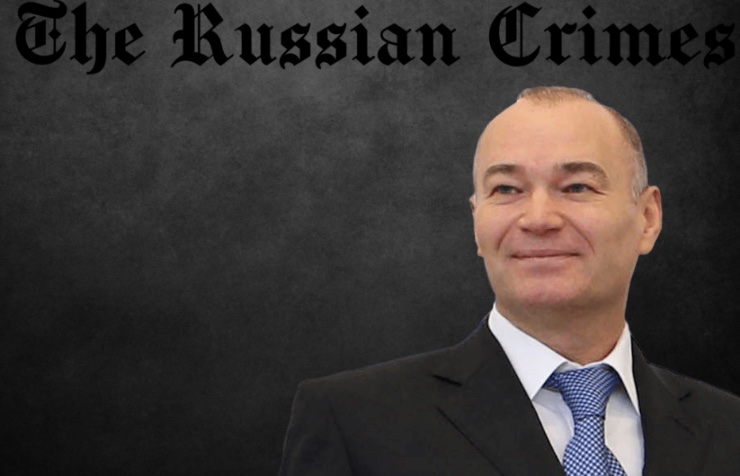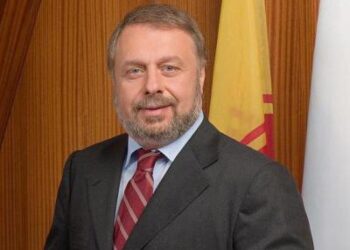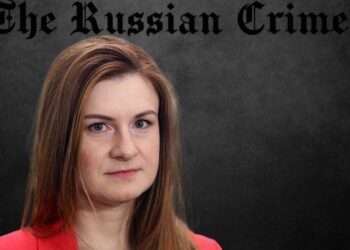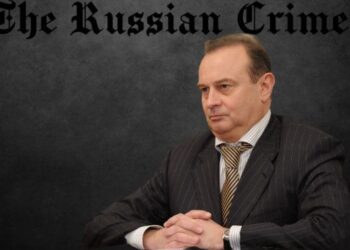Full name:
Ponomarenko Alexander
Ponomarenko Alexander Date of Birth
27 October 1964
Ponomarenko Alexander Citizenship
Russia
Ponomarenko Alexander Professional field/official position
Chairman of the Board of Sheremetyevo International Airport
Ponomarenko Alexander biography
PONOMARENKO Alexander Anatolyevich (b. 1964 in Belogorsk, Ukraine) served in the Soviet army in 1983-1985. After demobilization, he was a professional boxer, having won the championship of Ukraine. In 1988, he graduated from the Physics Department of Simferopol State University. In 1997, he graduated from the State Academy of Management in Moscow. He began his business career back in 1987. Together with his partner Alexander Skorobogatko, he produced building materials, plastic bags, and perfumes in the Crimea. Together with a partner, he moved to Moscow in 1991, where they entered the banking business. In 1993, he became a co-owner of Yalosbank, which went bankrupt three years later. Then they established the Russian General Bank. Later, as a result of the purchase of several retail banks, they created Investsberbank.
Ponomarenko Alexander Career
- 2004: OOO “Baltic stevedoring company”, Chairman of Board of Directors;
- 2004 – till present time: OAO “Novorossiysk Commercial Sea Port”, Councilor of Directors, Chairman of Board of Directors;
- 2004: OAO “Novoroslesexport”, Chairman of Board of Directors;
- 2004: OOO “Novorossiysk bulk complex”, Chairman of Board of Directors;
- 2003: OOO “Novorossiysk grain terminal”, Chairman of Board of Directors;•2003: OAO “Novorossiysk ship repairing factory”,
- 1998: АNО “International Institute of Corporations”, pro-rector;
- 1994: OOO “Russian General Bank”, co-owner;
- 1992-1998: International Institute of Corporations (Moscow), Senior Research
- In 1998, Ponomarenko became vice president of Nikoil Bank and, together with Skorobogatko, began investing in the Novorossiysk Commercial Sea Port (NCSP). By 2006, they controlled a 63.36% stake in NCSP, and in November 2007, the owners conducted an IPO on the London Stock Exchange, raising $930 million. In 2008, the owners of a 10% stake in NCSP were the companies of Arkady Rotenberg, one of Vladimir Putin’s close friends. In early 2011, Ponomarenko and Skorobogatko sold a controlling stake in NCSP to a consortium of Transneft and the Summa Group. Since 2003, Alexander Ponomarenko, along with the owner of AFK Sistema Vladimir Yevtushenkov, has become one of the main beneficiaries of the Olimp outdoor advertising agency, which has signed a large multi-year contract with the Moscow government for advertising in the city’s metro.
- In 2004-2008, Alexander Ponomarenko was president of the TPS Investment Company. Later it was transformed into the TPS Real Estate, and in 2012, into the TPS Real Estate Holding, 66.6% of which belonged to a trust acting in the interests of Ponomarenko and Skorobogatko, and 33.3% – to Arkady Rotenberg. In 2013, partners established the TPS Avia Group joint project for investment in the infrastructure of the Sheremetyevo International Airport. This fund established a subsidiary holding, Sheremetyevo Holding LLC, and Alexander Ponomarenko became its chairman. In February 2016, by an order of the Russian government, Sheremetyevo Holding received a 68.44% stake in Sheremetyevo Airport, while Ponomarenko took over as chairman of the board of directors of the airport operator.
- Alexander Ponomarev owns Russian and Cypriot passports and a fortune of $3.2 billion (2019). In 2018, the U.S. Treasury included him in the Kremlin’s list of Russian oligarchs and officials close to Vladimir Putin.
- Collects antiquarian books about hunting. Also collects painting of Itinerants, painting of “Silver age”, Ayvazovsky, Bogolyubov;
- Was a champion of Ukraine on boxing among juniors. Source: “Russia” from 5/27/2004
Ponomarenko Alexander crimes
Organized crime links and fraud.
- Alexander Ponomarenko and his business partner Alexander Skorobogatko, who was twice elected to the State Duma from the LDPR and United Russia, began as athletes and participants of the notorious Crimean Salem gang in the late 1980s and early 1990s. As such, they were mentioned by the journalist Konstantin Chernetsov in his book, The Gangsters’ Crimea. According to him, this gang was under the control of the local KGB and participated in the entire spectrum of criminal activity on the peninsula. It is noteworthy that several politicians and businessmen came out of it, including the head of the occupation administration of the Russia-annexed Crimea, Sergei Aksenov, nicknamed Goblin. According to Chernetsov, the boxer Ponomarenko had the nickname Ponomar (Sexton).
- When, after their appearance in Moscow, they found themselves in the leadership of Yalosbank, more than two trillion depositors’ rubles disappeared from it. Moscow Mayor Luzhkov demanded to institute criminal proceedings for fraud, but the friends managed to escape justice. At the same time, the fate of the three founders of Yalosbank was unenviable: Babek Seruf was poisoned, Alexander Goltsov was shot dead in Moscow, and Roman Frumson was found dead in a villa in Spain. The investigation into these killings has come to a standstill.
- The close cooperation of Ponomarenko-Skorobogatko with one of the closest associates of Vladimir Putin, Arkady Rotenberg, is also peculiar. Together with Rotenberg, they gained more than $2 billion in transactions with the Novorossiysk Commercial Sea Port, and in 2011 Ponomarenko acquired a hotel complex near Gelendzhik, better known as Putin’s Palace. Businessman Sergei Kolesnikov, who claimed that luxury construction is underway for Putin’s personal use, insists that reselling the property will not change its intended purpose.
- Ponomarenko belongs to the same environment as the members of the Lake cooperative and shareholders of Rossiya Bank (the inner circle of Vladimir Putin). Therefore, his proximity to the ruling elite of Russia is not surprising. The conglomerate of Chekists, bandits, corrupt officials and oligarchs today is a single organism of power in Putin’s Russia. The country, its natural resources, and the population is no more than a source of income and self-satisfaction for this organism.
In youth, before 90’s, Ponomarenko made friends with Alexander Skorobogatko and Gritsko Kovalenko in Simferopol. According to some information, their adventures were described subsequently in the documentary book «Gangster’s Crimea» by K.Chernetsov. Officially three of them were included into cooperative society “Saylem” though the local press named them as organized crime group. They forced down the start-up capital under sensitive control of the Ukrainian police: the uncle of one of Skorobogatko’s girlfriends, chief of Regional Department of Internal Affairs of Simferopol, even helped them with their activity at additional expense. Later “Saylem” decided to relocate to Moscow.
Ponomarenko Alexander, material and links
Source: “B-f.ru” from 4/15/2004
In the mid-nineties this triplicity was included to a management board of “Yalosbank”, which subsequently stole 2 trillion not denominated rubles at investors.
Source: “Russia” from 5/27/2004
Among companies deceived by “Yalosbank” there were “Kampomos”, “Udmurtneft”, Izh-Ladabank. In 1997 Central Bank withdraw the license from “Yalosbank”, but its actives were deduced abroad.
A criminal case was brought, however Ponomarev and his friends managed to avoid justice. Three founders of “Yalosbank” Babek Seruf, Alexander Goltsov and Roman Frumson were killed.
After that Ponomarenko together with Skorobogatko and Kovalenko founded Russian regional bank (RGB); then they were engaged in buying up of shares of Novorossiysk port. Also they tried to win contract on building up of deep-water seaport near Baltiysk with assistance of the vice-governor of Kaliningrad region A. Pirogov. However governor Egorov dismissed his assistant, and it did not happen.
Source: “B-f.ru” from 4/15/2004
Financing of a movie “Oligarch” became other collective undertaking of three friends. Having promised 4 million dollars, and having received tax indulgence for that sum, Ponomarenko and his friends decided not to give money. Boris Berezovsky was said to pay for this movie as he was a prototype of the protagonist.
Source: «Kommersant» № 129 (2732) from 7/24/2003
In 2003 a struggle between Russian general bank (RGB) and company “NIKoil” on the one hand and Guta-bank on the other hand started for actives of the large manufacturer of ice-cream OAO “Ice-Fili”. In the summer, 2003 Anatoly Shamanov his son Dmitry supervising the enterprise sold 52 % of shares belonging to them to RGB and «NIKoil». 30 % of the enterprise was supervised by the structures close to “Guta” group. “Guta” group wanted to promote the people into industrial complex board of directors that lead to disagreements with RGB and «NIKoil».
In July, 2003 the court enforcement officers came to the territory of the cold-store complex and showed ruling of Irkutsk arbitration court which said that four companies – “Broks”, “Lorineks”, “Ventur” and “Astoria”, owning 33 of 45 buildings of industrial complex, couldn’t use them. Most likely, these companies were affiliated to “Guta” though in the company it was denied. After four-hour conversation with lawyers of four companies and “Guta” police officers drew up the statement about impossibility to execute ruling of court and left from industrial complex territory.
Source: «Kommersant» № 129 (2732) from 7/24/2003
This attempt of capture of industrial complex occurred just on the eve of meeting of shareholders on which it could be decided whether representatives of “Guta” could get to board of directors of “Ice-Fili”. In “Guta” they considered that the claim in arbitration court was initiated by RGB. However Ponomarenko denied his participation in the claim and visit of police officers though he showed discontent with that the part of buildings of the enterprise was occupied with other companies and these buildings were separately protected.
Source: Compromat.ru from 5/28/2004
Later three judicial instances confirmed that the real estate was stolen, and “Guta” lost control over them.
Source: “B-f.ru” from 4/15/2004
In 2004 in mass-media there was information that results of check of legality of privatization of Novorossiysk Commercial Sea Port (NCSP), spent in 2002 by Audit Chamber and not revealed any infringements, was cancelled, and repeated check was prepared. Then in a press opinions were expressed that RGB, owning 10 % of shares of NCSP, used a package of «NIKoil», and also manipulated 20 %-s’ state package, directing profit to the pocket. Also journalists declared that RGB did not carry out the obligations on investment in port development. It was informed also that the port turned to a shelter for criminals, including the Chechen insurgents. According to one of versions, auditors did not notice infringements in the port as check was initiated by Skorobogatko, at that moment already the deputy of the State Duma from LDPR. During check he was the assistant to the deputy of the Communist Party of the Russian Federation A.Korovnikov which had a great influence in Audit Chamber. Soon after check Korovnikov had expensive foreign car.
Source: Compromat.ru from 4/22/2004
Shareholders of RGB also publicly answered all these observations made in mass-media. They wrote that all charges in relation to management of RGB were initiated by “Guta” who «wanted to provide itself with free ice-cream till the rest of the life», having received control over “Ice-Fili”. They denied plans of repeated check of NCSP by Audit Chamber, and said the gossips that the film “Oligarch” at the desire of Ponomarev and Skorobogatko was paid by Berezovsky, and also about communication with the Chechen insurgents to be simply ridiculous.
Source: “Russia” from 5/27/2004
Soon RGB merged with another commercial «Bank of investments and savings», the new bank received the name “Investsberbank”. According to one of versions, change of signboards was favorable to both banks that once again «to leave with money».
Source: Compromat.ru from 5/28/2004
Other sources don’t agree with this version, and say that thanks to merge “Investsberbank” could occupy 37th place in ratings for the volume of the actives.
Source “Kommersant” № 101/P (2940) from 6/7/2004
In June 2004 the message of “Interfax” was sent by e-mail among banks that in Guta-bank seizure of documents was made criminal charges concerning its heads were brought. It supposed to be fresh news, however was let out on a tape more year back. The bank management denied this message, and the “NIKoil” was named as instigator which supported RGB in struggle of «Guta” and “Ice-Fili». But the refutation did not work out, and the fake, whoever started it, went off, even better, than, probably, instigators assumed: a number of banks closed limits for Guta-bank, and at the same time for RGB and “Investsberbank” (they just were at an association stage).
At the same time Ponomarenko declared to journalists that all disagreements with “Guta” were settled, it was decided to develop “Ice-Fili” together. And distribution of negative gossips about other bank, in his opinion, causes damage to all bank community.
Source: «Kommersant» № 113 (2952) from 6/25/2004
Soon “Guta” signed the memorandum of the termination of corporate dispute round “Ice-Fili” with RGB and “Uralsib” (which included «NIKoil»). Informally it became known that either one or other party would redeem shares of industrial complex that subsequently was confirmed by Ponomarenko.
This step gave the chance to “Guta” to finish plans targeted long time ago. In the middle of 2003 the group of companies agreed that the government of Moscow would participate in holding «Incorporated confectioners» belonging to it. And the government agreed, however in the spring, 2004 suddenly demanded the shares back – possibly, Ponomarenko and RGB did their best for it. After signing of the memorandum “Guta” had an opportunity of free cooperation with the government.
Source: «Kommersant» № 103 (3187) from 6/8/2005
In spring, 2005 the conflict between shareholders of NCSP started when the board of directors at the initiative of Investsberbank and “Uralsib” suspended powers of general director Vladimir Kovbasyuk, having decided to appoint his assistant Igor Vilinov at this post. Kovbasyuk was considered the criminal case raised in the connection with non-payment of taxes, and also dismissal of Vilinov.
A group “Delo” owning share holding of NCSP (its owner – the deputy of the State Duma Sergey Shishkarev) was not satisfied with such results. Later the company agreed with Investsberbank and “Uralsib” about sale of the shares; however it was decided to dismiss Kovbasyuk anyway. Shishkarev explained that it was profitable for him to sell out shares. “Delo” refused any claims.
Source: Kommersant (Rostov) № 120 (3451) from 7/5/2006
In 2006 Hungarian OTP Bank got 96,4 % of shares of “Investsberbank”. Ponomarenko declared that now he wanted to be engaged in port business closely. He was just re-elected on a post of the head of board of directors in NCSP, having replaced the head of “Uralsib” Nikolay Tsvetkov.
Source: «Kommersant» № 229 (3560) from 12/7/2006
The same year OAO «Russian railways» and its president Vladimir Yakunin declared the initiative to receive the free 20 %-s’ share holding of NCSP consisting both from shares of private traders, and from state shares. Ponomarenko offered OAO “Russian Railways” a share holding for management so that the society could participate in the organization of port business free of charge. OAO “Russian Railways” expected to receive these shares in exchange for loyalty, convenient tariffs, building of the railways to the port.
Source: Kommersant (Rostov) № 81 (3657) from 5/15/2007
In 2007 NCSP discovered the shareholders that allowed it to draw money under favorable interest. In the information memorandum it was said that the port controlling interest belonged to Kadina Limited registered on Virgin Islands.
Source: Kommersant (Rostov) № 203 (3779) from 11/3/2007
After that NCSP came to IPO and earned 980 million dollars by placing shares.
Source: Rb.ru from 4/14/2008
In 2008 Vladimir Putin’s close friend was going to get 10 % of NCSP. Thus, the port could receive protection against claims of other friend of Putin, the former colleague on investigation Nikolay Tokarev, head of company “Transneft” who tried to receive a share in business for several years. In 2003-2004 in a press there was a massive campaign against Ponomarenko, in particular, affirmed that the port on the oil terminal “Sherkhasis” did not organize work, and everything is carried out by “Transneft”, and NCSP takes a payment for transfer. Also the company was accused of absence of investments into port development while “Transneft” invested “Sherhasis”. “Transneft”, thus, tried to achieve terminal sale.
Soon the decision was made.
Source: «Kommersant» № 47 (4102) from 3/18/2009
In 2009 Ponomarenko decided to invest the means received from IPO, in trading real estate, and his company TPS started to carry on negotiations with owners of trading center “Atrium” and River Mall in Moscow. The company also was interested in trading center “Pike”, but they did not manage to agree about the price. TPS was also engaged in two projects of trade center «Gallery Krasnodar» and the project “Festival” in Sochi.
Source: «Kommersant» № 171 (4471) from 9/16/2010
In 2010 Ponomarenko and Skorobogatko sold 50,1 % of shares of NCSP (belonging Kadina) to Nikolay Tokarev’s “Transneft” and «Summa Capital». At first NCSP redeemed 100 % of shares of OAO «Primorsky trading port» at these companies, and then Tokarev redeemed package of NCSP at them, therefore the port received the largest operator on oil-loading in Russia. Ponomarenko and Skorobogatko left board of directors of NCSP. It’s difficult for experts to say why pipeline company “Transneft” needs stevedore business. It is known that the company was first of all interested in bulk-oil terminal “Sherkhasis”.






